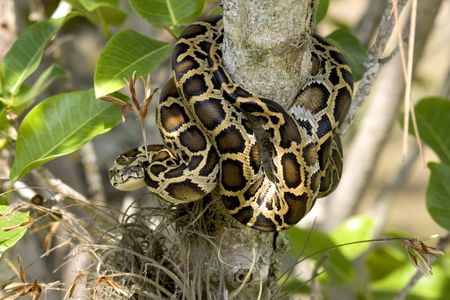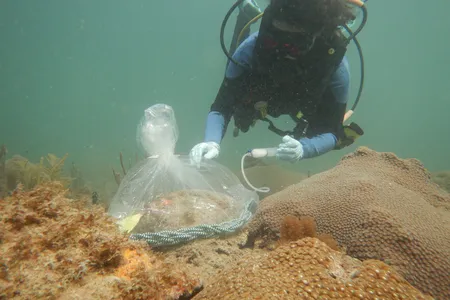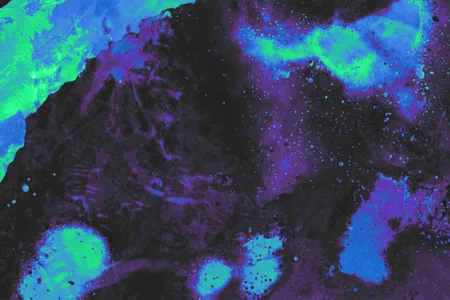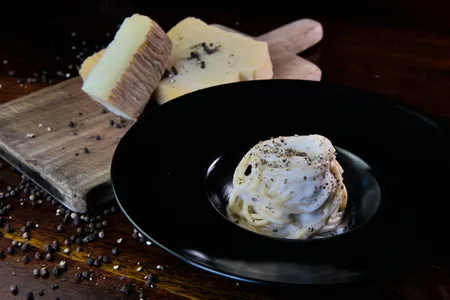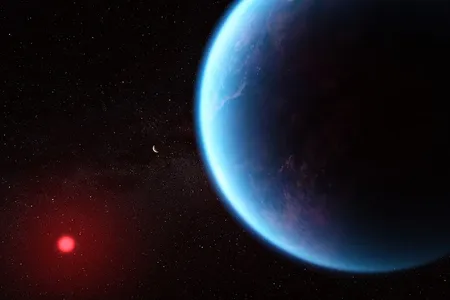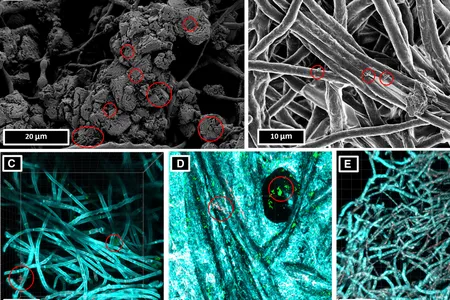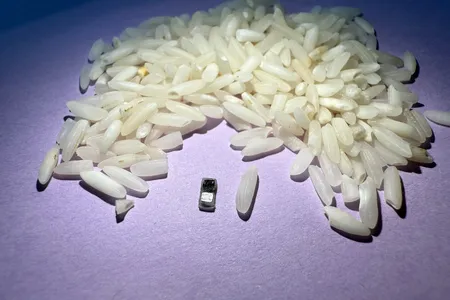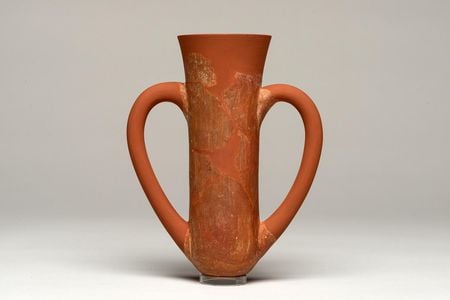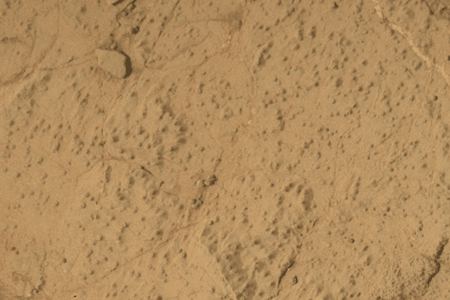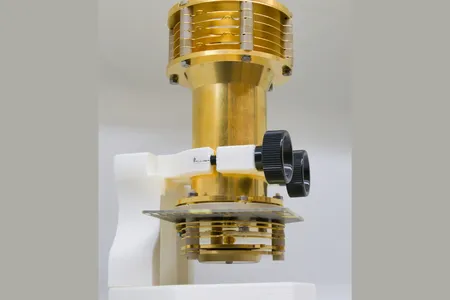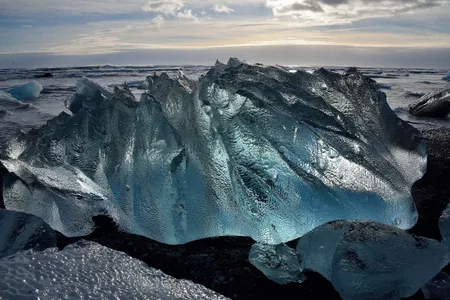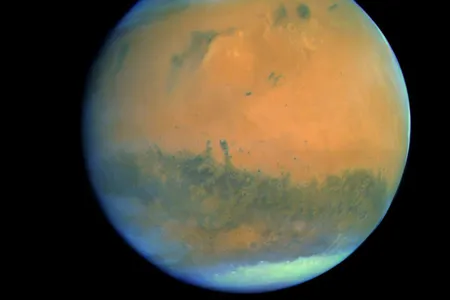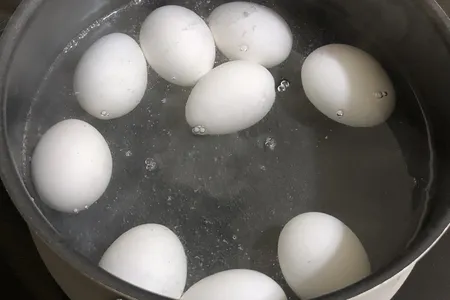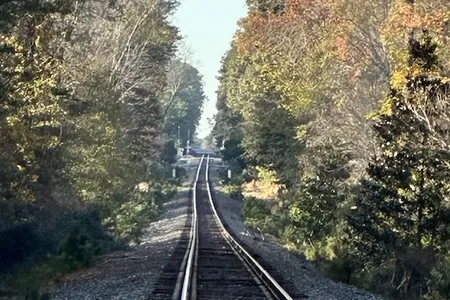Researchers Discover the Trick That Allows Burmese Pythons to Digest the Bones of Their Prey
Special intestinal cells collect excess minerals into particles the snakes can poop out, according to a new study
Something Strange Is Happening to Tomatoes Growing on the Galápagos Islands
Scientists say wild tomato plants on the archipelago’s western islands are experiencing “reverse evolution” and reverting back to ancestral traits
A Deadly Disease Is Eating Away at Caribbean Corals and Wreaking Havoc on Reefs. Could Probiotics Be the Solution?
New research suggests the probiotic McH1-7 could help stop the spread of stony coral tissue loss disease among wild corals near Fort Lauderdale, Florida
Did Water Form in the Earliest Years of the Universe?
A recent study suggests huge volumes of the molecule emerged during the cosmic dawn
Astrophysicists Track Down the Mysterious Cosmic Origins of Gold and Other Heavy Metals in Our Galaxy
Researchers suggest powerful bursts from magnetars—collapsed stars with strong magnetic fields—may have contributed up to 10 percent of all elements heavier than iron in the Milky Way
Researchers Have the Perfect Cacio e Pepe Recipe Down to a Science—Literally
Cooking the famous, creamy pasta sauce is as delicious as it is frustrating, because the cheese tends to clump when exposed to heat. That’s why Italian scientists created a new technique that’s “simple yet precise”
A New Analysis Raises Doubts About Potential Hints of Life Recently Detected on a Distant Exoplanet
Astronomers published evidence of possible biosignatures on the planet K2-18b earlier this month, but another look at the data suggests the finding could be statistical noise
New, ‘Living’ Building Material Made From Fungi and Bacteria Could Pave the Way to Self-Healing Structures
Researchers are developing the biomaterial as a more environmentally friendly alternative to concrete, but any wide-scale use is still far away
Chemical Hints on a Distant Planet Offer ‘Strongest Evidence Yet’ for Life Outside Our Solar System, Astronomers Say
The James Webb Space Telescope spotted possible signatures for life in an exoplanet’s atmosphere. Still, researchers caution it’s far too early to call the findings definitive
Researchers Develop the World’s Smallest Pacemaker, and It Could Be Revolutionary for Newborn Babies With Heart Defects
The new device is smaller than a grain of rice and gets absorbed by the patient’s body when it’s no longer needed, eliminating the risks of an extraction surgery
How an American Merchant, a French Official and a Pioneering Chemist Smuggled Much-Needed Gunpowder to the Continental Army
The trio’s scheming became a crucial element of the fledgling nation’s success in the Revolutionary War
Who Drank Wine in Ancient Troy? New Research Suggests Just About Everyone
Chemical analyses revealed wine residue on both expensive goblets and common cups unearthed among the legendary city’s ruins
Curiosity Rover Discovers Largest Organic Compounds Ever Found on Mars, a Possible Sign of Ancient Life
The molecules may be remnants of fatty acids, which form cell membranes in Earth’s organisms, though they might have formed through a non-biological process
Scientists Hope This Tool Could Identify Tiny Fossils on Mars, Revealing Hints to Potential Early Life on the Planet
If Mars ever hosted microorganisms in its bygone oceans, their fossils might still be preserved in minerals—and now, we have a new potential way to find them
How Enormous Glaciers on the Frozen ‘Snowball Earth’ Might Have Bulldozed the Path to Complex Life on Our Planet
A new study suggests glaciers carved metals out from the Earth’s surface 700 million years ago, leading to chemical reactions in the oceans that set the stage for early animal evolution
The Red Dust on Mars Might Be a Different Mineral Than Scientists Thought, Shedding Light on the Planet’s Past
A new study suggests the iron oxide responsible for the red planet’s distinctive hue is ferrihydrite, pointing to the bygone presence of water, an important ingredient for life
Five Unusual Ways People Used Lead—and Suffered For It
Cultures throughout history have put lead to use for wacky and often deeply poisonous purposes
Discover the Aromas of Ancient Egyptian Mummies, From Orange Peels to Pine to Incense
A new, first-of-its-kind analysis of the scents of nine mummies detected woody, spicy, herbal and rancid notes, among other odors
Scientists Say They’ve Found the Perfect Way to Boil an Egg. It Takes 32 Minutes and Lots of Attention
The team used computer models of computational fluid dynamics, then tested out the painstaking—yet reportedly delicious—recipe for themselves
The ‘Ghost’ Haunting This South Carolina Town Might Have an Earthly Explanation, Scientist Says
In a new research article, a seismologist argues that earthquakes are the reason for the mysterious lights associated with a local urban legend in Summerville
Page 1 of 21
